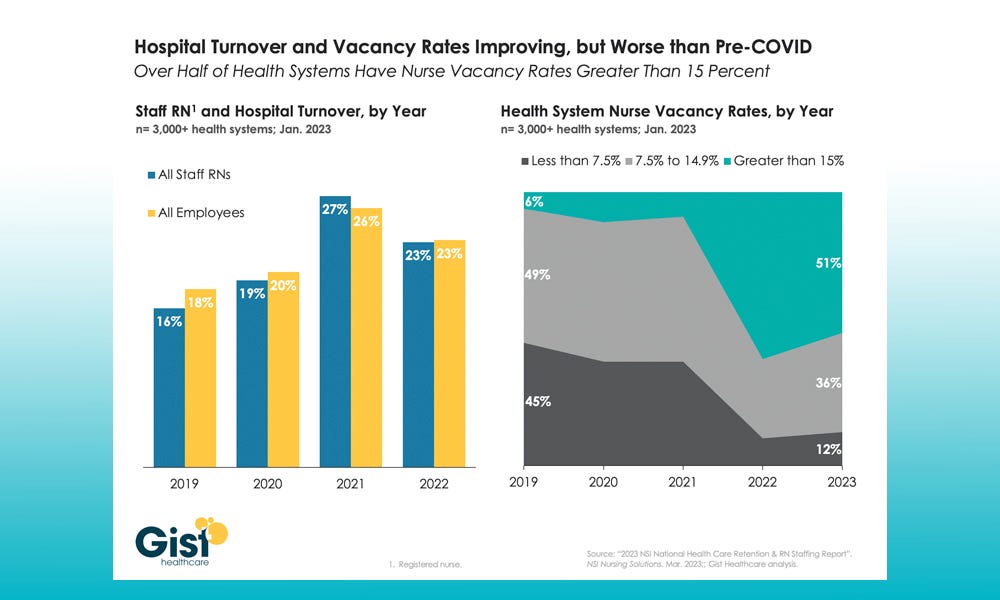Sanders’ massive primary care & workforce bill has a GOP co-sponsor(!) who's an MD(!); here's what's in it
Plus: Left Coast lawmakers consider a $25/hour minimum wage for healthcare workers
Remember my preview (in the Aug. 4 edition of Healthcare Workforce Report) of Sen. Bernie Sanders’ early draft of a massive healthcare bill that would double — and in some cases triple — federal investments in our country’s healthcare workforce and access to primary care?
Well, that bill is now officially bipartisan. And it has been introduced on the floor of the U.S. Senate.
Sanders — in his role as chairman of the Senate Health, Education, Labor and Pensions Committee — has reached a deal with Sen. Roger Marshall, who is a medical doctor and the top Republican on the Subcommittee on Primary Health and Retirement Security.
Yesterday (Sept. 14) they announced they’ve agreed to co-sponsor the legislation, which is due to be “marked up” next week (that’s where they hammer out the details and make sure the numbers work).
Why would the Sanders-Marshall Primary Care bill be a big deal for healthcare employers, workers, and patients?
A lot of reasons.
First, a refresher on the shortages of nurses, doctors, and training spots for qualified nursing school applicants:
And a refresher on the mass exodus of hospital staff since COVID began, and how many unfilled nursing positions existed at the beginning of this year:
Key highlights from the Sanders-Marshall bill:
The proposal calls for over $26 billion in funding to expand primary care in America and address the healthcare workforce shortage:
Provides $5.8 billion a year over the next three years in mandatory funding for community health centers, which provide high-quality primary health care to more than 30 million Americans.
Within those funds there is a $245 million per year set aside to expand hours of operation at community health centers and $55 million per year for school-based health services.
Health centers will be newly required to provide nutrition services.
Provides $3 billion in capital funding primarily to enable community health centers to expand dental care and mental health care in their facilities.
Increases funding for the National Health Service Corps from $310 million to $950 million per year over the next three years to provide 2,100 scholarships and debt forgiveness for some 20,000 doctors, nurses, dentists, mental health providers, and other health care professionals who commit to working in our nation’s most underserved areas.
Provides $1.5 billion over the next five years in the Teaching Health Center Graduate Medical Education program to create more than 700 new primary care residency slots, which would result in up to 2,800 additional doctors by 2031. This program increases the number of primary care physicians and dental residents trained in community-based settings. In Academic Year 2021-2022, the program funded more than 930 individual primary care medical and dental residents, who provided more than 1.1 million hours of patient care to more than 800,000 patients in medically underserved and rural areas.
Addresses the nursing shortage in America by investing $1.2 billion in grants to community colleges and state universities to increase the number of students enrolled in accredited, two-year Registered Nursing programs. The schools receiving these awards must use them to expand their class sizes and grow the number of two-year nurses trained across the country. This provision would allow schools to train up to 60,000 additional two-year nurses.
Provides $300 million to produce an additional 2,000 primary care doctors by 2032. The bill will also increase residency programs in rural America through an investment in the Rural Residency Planning and Development program and invests in training and workforce programs for dentists and dental assistants.
You can read the whole bill here, if you have the inclination: https://www.sanders.senate.gov/wp-content/uploads/Bipartisan-Primary-Care-and-Health-Workforce-Act.pdf
It is by no means a done deal, even with the bipartisan sponsorship. This report by The Hill explains a little more about potential roadblocks and opposition.
The announcement from Sanders and Marshall says the bill will be fully paid for but doesn’t share any details.
FWIW: I’m going to assume that you all are as sick as I am of the unnecessary drama in D.C. and Congress’ inability to actually solve problems important to Americans — like, say, the fact that half of us can’t see a doctor without a weeks-long wait — so I will spare you all the political sniping and lobbyists’ spin that is already starting to appear in news outlets.
If the Sanders-Marshall bill — or any other legislation proposing real solutions to the United States’ worsening shortage of healthcare professionals — gets anywhere close to passing, I’ll keep y’all informed.
California Considers a Radical Minimum Wage for HC Workers
Over on the Left Coast, the California State Senate has approved a bill requiring healthcare employers to pay at least $25/hour to all their workers by June 2026.
Wow! I mean, given the astronomical housing costs there, perhaps $25 an hour still falls short of a “living wage” for a one-income household. But… wow!
“The law would apply not only to employees who work for a healthcare facility, but also employees of other companies while they perform work that is primarily related to healthcare on the premises of a healthcare facility,” explains attorney and writer Christopher W. Olmsted.
“Furthermore, if this bill passes, exempt employees must be paid no less than 150 percent of the healthcare minimum wage,” Olmsted writes. “The bill broadly covers most healthcare operations, but it would not include small independent practices.”
The amended version of the bill would establish three different minimum wage schedules for covered healthcare employers, depending on the nature of the employer and their location.
As of Wednesday night, the bill was still being considered by the Assembly.
Shout-out to Healthcare Workforce Report sponsors
The Healthcare Workforce Report newsletter is generously supported by MedCerts.
For information on supporting HWR, email HealthcareWorkforce@substack.com.







